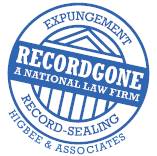Mathew Higbee, founder of the Law Firm of Higbee & Associates and RecordGone.com, testified in favor of changes to California’s expungement law in front of the California State Assembly Judiciary Committee on Tuesday, June 25th. Higbee was speaking in support of Senate Bill 530 (SB 530), authored by Senator Roderick Wright. Continue reading
RecordGone.com Founder Testifies In Support of California Expungement Bill
Closing Courthouses in Los Angeles County: How It May Affect Cases
Last year, in an effort to consolidate resources, the Superior Court of California announced that nine Los Angeles County courthouses would soon be closing, and the cases transferred to other local courthouses. The closures took effect on June 14, 2013. Continue reading
New Ohio Expungement Law Broadens Number Of Offenses That May Be Expunged
On September 28, 2012, a new Ohio state law began providing a second chance to those with a criminal history, allowing for expungement of up to two convictions. In Ohio, even a minor conviction can hold one back from obtaining employment, housing, and other important opportunities. Continue reading
Minnesota Supreme Court Curtails State Courts’ Expungement Power
A May 22, 2013 ruling by the Minnesota Supreme Court is not welcome news for those who want to have their criminal records expunged. The ruling reverses a recent appellate court decision that allowed the courts to order the expungement of records contained in the Bureau of Criminal Apprehension (BCA) database, which is frequently searched by employers and the public. Despite the ruling, Attorney Mathew Higbee says there are still plenty of good reasons for people to have their records expunged by the courts. Continue reading
House Bill 4186 Could Lessen The Effect of the Invisible Sentence in Michigan
In Michigan, former offenders that have served their time, completed their sentence, and paid their debt to society may still be serving what is known as the “invisible sentence,” which has the potential to last a lifetime. New proposed legislature, House Bill 4186, would make more people serving the “invisible sentence” eligible for expungements. Continue reading



